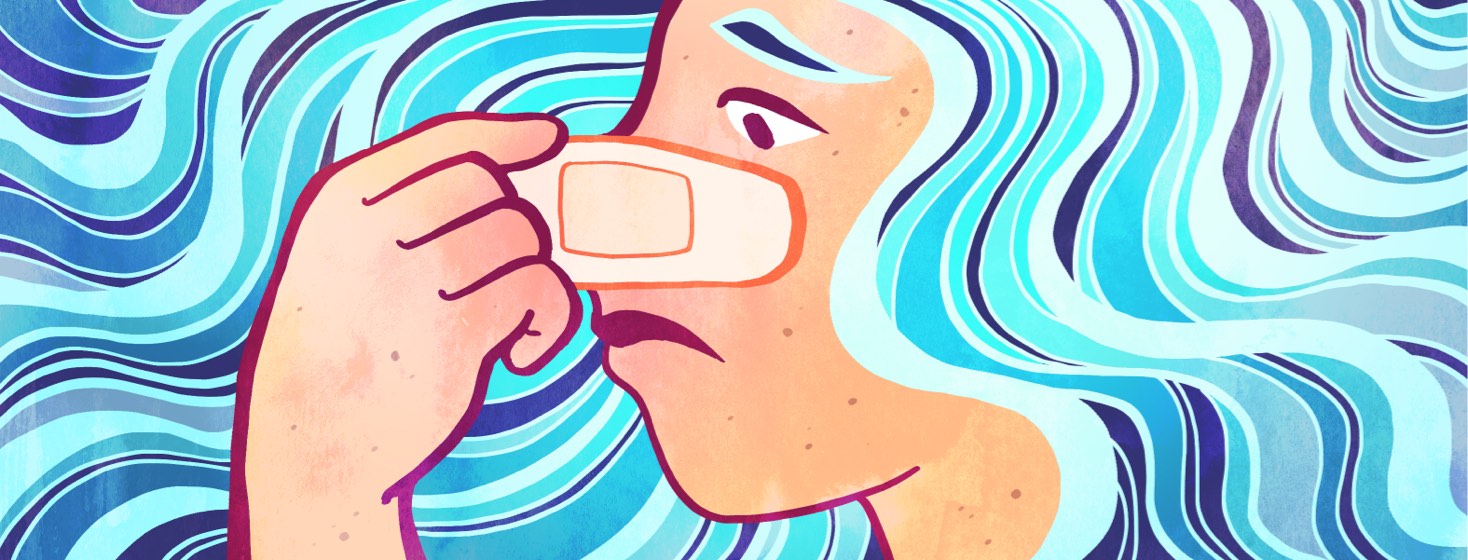Sleep Apnea Surgery? I'm Keeping My Turbinates, Thanks
I admit that the fear of surgery has prevented me from pursuing some obstructive sleep apnea (OSA) treatment options.
Ironically, I’ve had a significant cosmetic procedure in the past – reshaping parts of my body that I didn’t like and removing fat I didn’t want. But that didn’t scare me, other than regular, reasonable pre-anesthesia jitters.
What does scare me are surgeries that would permanently alter my anatomy, even if they represent a potential solution for my severe OSA.
What are turbinates?
For example, I’ve been told by more than one ENT that I’m a potential candidate for turbinate reduction. Turbinates are wing-like structures inside the nose. Their job is to help clean, warm, filter, and humidify the air we breathe in before it reaches our lungs. They’re bony, but light – like eggshells, as one doctor described them. They’re covered by blood vessels and mucus membrane.
Those blood vessels can fill up with blood when they’re irritated by allergies, infection, or inflammation – and that’s what causes a stuffy nose. This turbinate swelling is one of the most common reasons for chronic nasal congestion and can contribute to OSA.1
Living with thick turbinates
Nasal endoscopy (sticking a tube down your anesthetized nasal cavity, which was one of the most bizarre experiences I’ve ever had) showed that my turbinates are apparently thick in some way. It’s more difficult for air to pass through them.
Can confirm: While I can usually breathe through my nose, there is often resistance. It’s enough to prevent me from using a nasal or nasal pillow mask: Invariably, I end up breathing through my mouth when sleep.
Plus, I have a narrow throat airway that creates most of the obstruction and noise anyway. For me, the full-face mask is the only solution.
Researching turbinate reduction surgery
After my ENT suggested turbinate reduction, I did look into it. Turns out there are lots of minimally invasive ways to shrink these “chambers,” and it’s usually a quick, outpatient procedure.
Of course, you will find a lot of scary stuff about anything on the Internet, too. Apparently, doctors used to completely remove turbinates in some people. Some people experienced an awful condition called “empty nose syndrome,” where your brain no longer senses air in your nose.2
When I brought my concerns up with my doctor on my follow-up visit, he seemed to be annoyed. He told me that doctors are more conservative nowadays and just do reductions, he said, stating, “Empty nose syndrome is a myth anyway – none of my patients have ever had that.” (Apparently, this condition is pretty controversial in the medical community.)
Turbinate reduction is not for me
When I noted that my snoring was mainly from my throat anyway, not my nose, he just sort of shrugged. He said it was a routine procedure that he’s done thousands of times. I felt he was being pretty pushy about it, downplaying the risks. But I went ahead and let them schedule it for me, because I was embarrassed to admit I was scared and just wanted to get out of there.
Two days before the procedure, I cancelled it and never contacted that office again. A little bit of overkill, maybe, but it just made me so uncomfortable! I talked to my current ENT about turbinate reduction, and he told me it’s always on the table if I ever want to do something about recurring nasal stuffiness.
He reassured me that the CPAP treatment I’m getting is still the gold standard for my OSA. So, I’m going to hold on to my thick little turbinates, thanks.
Have you heard of turbinate reduction surgery? Have you had the procedure done? Why or why not? We would love to hear about others' experiences! Share with us in the comments below!

Join the conversation